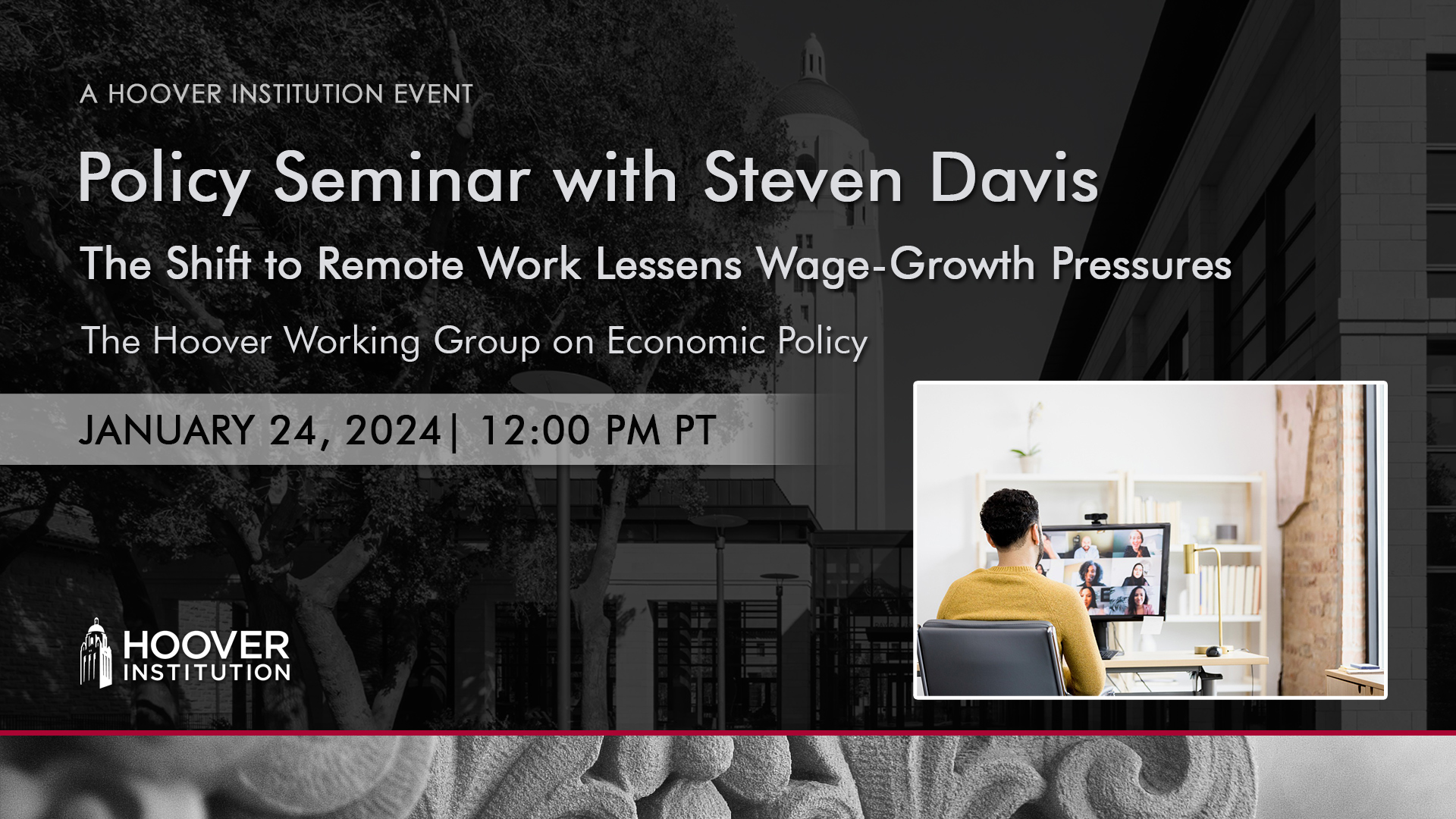PARTICIPANTS
Steven Davis, John Taylor, Alphonso Adams, Annelise Anderson, Jose Maria Barrero, Michael Boskin, David Brady, Doug Branch, Matthew Canzoneri, Jacob Carney, Erin Carter, Pedro Carvalho, John Cochrane, Christopher Erceg, Andy Filardo, Kevin Foster, Bob Hall, Eric Hanushek, Ken Judd, Greg Kaldor, Dan Kessler, Pete Klenow, Evan Koenig, Don Koch, Anjini Koshar, Simon Krause, Marianna Kudlyak, Jeff Lacker, David Laidler, Christina Langer, Ross Levine, Mickey Levy, Steve Liesman, Ilian Mihov, Casey Mulligan, David Neumark, Radek Paluszynski, David Papell, Elena Pastorino, Paul Peterson, Charles Plosser, Alvin Rabushka, Macke Raymond, Flavio Rovida, Richard Sousa, Tom Stephenson, Jack Tatom, George Tavlas, Yevgeniy Teryoshin, Victor Varcarcel, Luigi Zingales
ISSUES DISCUSSED
Steven Davis, the Thomas W. and Susan B. Ford Senior Fellow at the Hoover Institution, discussed “The Shift to Remote Work Lessens Wage-Growth Pressures,” a paper with Jose Maria Barrero (Instituto Tecnológico Autónomo de México Business School), Nicholas Bloom (Stanford University), Brent Meyer (Federal Reserve Bank of Atlanta), and Emil Mihaylov (Federal Reserve Bank of Atlanta).
John Taylor, the Mary and Robert Raymond Professor of Economics at Stanford University and the George P. Shultz Senior Fellow in Economics at the Hoover Institution, was the moderator.
PAPER SUMMARY
The recent shift to remote work raised the amenity value of employment. As compensation adjusts to share the amenity-value gains with employers, wage-growth pressures moderate. We find empirical support for this mechanism in the wage-setting behavior of U.S. employers, and we develop novel survey data to quantify its force. Our data imply a cumulative wage-growth moderation of 2.0 percentage points over two years. This moderation offsets more than half the real-wage catchup effect that Blanchard (2022) highlights in his analysis of near-term inflation pressures. The amenity-values gains associated with the recent rise of remote work also lower labor’s share of national income by 1.1 percentage points. In addition, the “unexpected compression” of wages since early 2020 (Autor and Dube, 2022) is partly explained by the same amenity-value effect, which operates differentially across the earnings distribution.
To read the paper, click here
To read the slides, click here
WATCH THE SEMINAR
Topic: “The Shift to Remote Work Lessens Wage-Growth Pressures”
Start Time: January 24, 2024, 12:00 PM PT



















